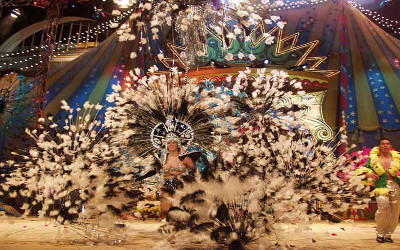¡Hola! I have recently found this new song from Juan Luís Guerra, who is a very famous singer from Hispanic America. He plays mostly bachata and other related music styles. This song talks about love and about how much a person loves the kisses from his beloved one. Note: There is a nice intro scene and the song itself begins at 0:50.
Hope you enjoy it! You can read the lyrics below while listening to it. ¡Hasta pronto! :)
Letra de la canción:
Hope you enjoy it! You can read the lyrics below while listening to it. ¡Hasta pronto! :)
Letra de la canción:
Para mi corazón
A ti te canto, solo a ti (Gua, guarara)
Bachata con inspiración (Gua, guarara)
A ti princesa linda de mi corazón
Oooh de mi corazón
Bachata con inspiración (Gua, guarara)
A ti princesa linda de mi corazón
Oooh de mi corazón
Amada tu eres para mi (Gua, guarara)
Como ramito de azahar (Gua, guarara)
Manzana y palomita de mi palomar
Ooh de mi palomar
Amor intenso, más ancho que el mar
Como ramito de azahar (Gua, guarara)
Manzana y palomita de mi palomar
Ooh de mi palomar
Amor intenso, más ancho que el mar
Tus besos se han quedado en mi cara mujer
Son como sellitos de amor en mi piel
Tus besos procurándome en esta canción
Viven en la esquina de mi corazón
Son como sellitos de amor en mi piel
Tus besos procurándome en esta canción
Viven en la esquina de mi corazón
Tus besos me enamoran, me colman de bien
Besos de ternura, besitos de miel
Tus besos que me arrullan, me dan la ilusión
Bálsamo y perfume para mi corazón
Oooh, oooh, para mi corazón
Besos de ternura, besitos de miel
Tus besos que me arrullan, me dan la ilusión
Bálsamo y perfume para mi corazón
Oooh, oooh, para mi corazón
Hermosa luces para mi (Gua, guarara)
Tus ojos mi revelación (Gua, guarara)
No hay nada como el dulce que tiene tu voz
No como el dulce que tiene tu voz
Tus ojos mi revelación (Gua, guarara)
No hay nada como el dulce que tiene tu voz
No como el dulce que tiene tu voz

























